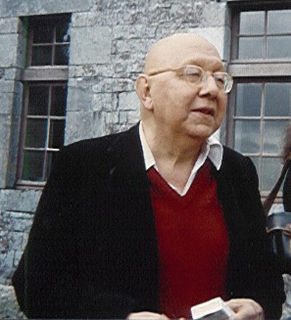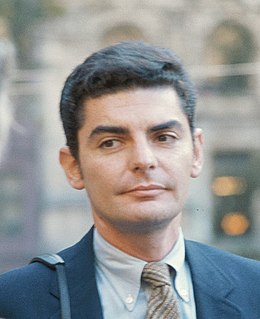A Quote by Ban Ki-moon
To measure the success of our societies, we should examine how well those with different abilities, including persons with autism, are integrated as full and valued members.
Related Quotes
I think that if I could do any sort of research of autism that I wanted to do, at this point I would take a sample of classic, early infantile autism persons and compare them with what I call "classic late onset autism", individuals. I think we will find that the cause of those youngsters with autism who have autism from birth is probably different than those who have late onset autism.
While all societies make their own imaginaries (institutions, laws, traditions, beliefs and behaviors), autonomous societies are those that their members are aware of this fact, and explicitly self-institute (????-?????????). In contrast, the members of heteronomous societies attribute their imaginaries to some extra-social authority (i.e. God, ancestors, historical necessity)
Those are big challenges in our age, not just how we live as co-citizens in societies with people of different faiths and different cultures - I mean, that's a big challenge itself - but how we think about all that as Christians, or as Jews, or as Muslims, or as Hindus. How do we think about the religious other? There's a theological dimension as well as a civic dimension to our pluralism.
I am sympathetic to the general form of Aristotle's view: the exercise of complex and more inclusive abilities is not anything in itself that is or necessarily should be valued over simple and less inclusive abilities. Rather, value depends on what the abilities are and the ends to which they are put.
We honor ambition, we reward greed, we celebrate materialism, we worship acquisitiveness, we commercialize art, we cherish success and then we bark at the young about the gentle arts of the spirit. The kids know that if we really valued learning, we would pay our teachers what we pay our lawyers and stockbrokers. If we valued art, we would not measure it by its capacity to produce profits. If we regarded literature as important, we would remove it from the celebrity sweepstakes and spend a little money on our libraries.
I think one of the problems with the definition of autism is we keep expanding it. It started as "early infantile autism", and then it became "autism", and now it's "autism spectrum disorder". I'm not opposed to that from the standpoint of trying to broaden our vistas, and so forth. But from a research point of view, the term autism is lost in specificity.
Well, I think that when you think about the challenges we face, these are challenges that require us to look forward and not backwards. When it comes to the economy I think we have to recognize that we are now in a global economy. And that the measure of our success is: how well are we training our workers? How well are we investing in the new energy economy?





































